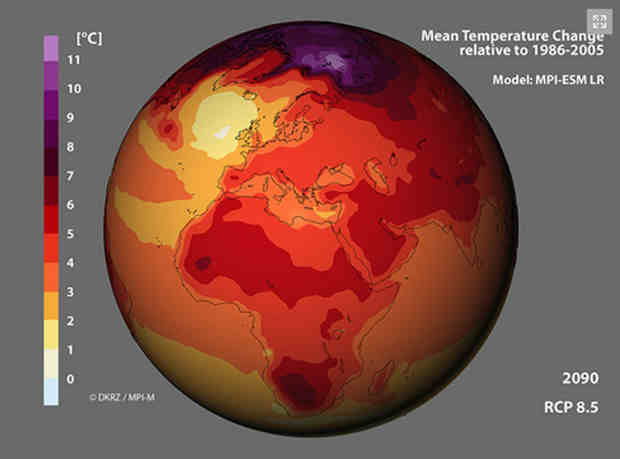Germans Use IBM Big Data to Manage Climate Data
The German Climate Computing Center is using technology and services from IBM (NYSE: IBM) to manage a climate simulation data archive, used by leading climate researchers worldwide.
The archive currently consists of more than 40 petabytes of data and is projected to grow by roughly 75 petabytes annually over the next five years.
For comparison, a petabyte of data is equal to roughly 210,000 DVDs. As climate simulations are carried out on increasingly powerful supercomputers, massive amounts of data are produced that must be effectively stored and analyzed.
To efficiently manage and provide quick access to this amount of data for analysis and research through its Hierarchical Storage Management system, the Center has selected the High Performance Storage System (HPSS) software solution developed by IBM and the U.S. Department of Energy. Supported by IBM services, this solution is capable of handling more than 500 petabytes of data.
[ Obama: Climate Change Cannot Be Ignored ]
Organizations including the Intergovernmental Panel on Climate Change, the Max-Planck Institute for Meteorology, the University of Hamburg, the Helmholtz-Zentrum Geesthacht Center for Materials and Coastal Research, the Alfred Wegener Institute Helmholtz Center for Polar and Marine Research, the West African Science Service Center on Climate Change and Adapted Land Use, The Coordinated Energy and Water Cycle Observation Project, the Program For Earth System Modeling, and the Center itself use data in the archive for a range of research and reporting activities.
HPSS technology is the result of a 20-year collaborative effort between IBM and the Lawrence Livermore, Los Alamos, Sandia, Lawrence Berkeley and Oak Ridge National Laboratories of the U.S. Department of Energy. It is used for very large scientific data archives at research facilities and universities, and for weather forecast systems.















